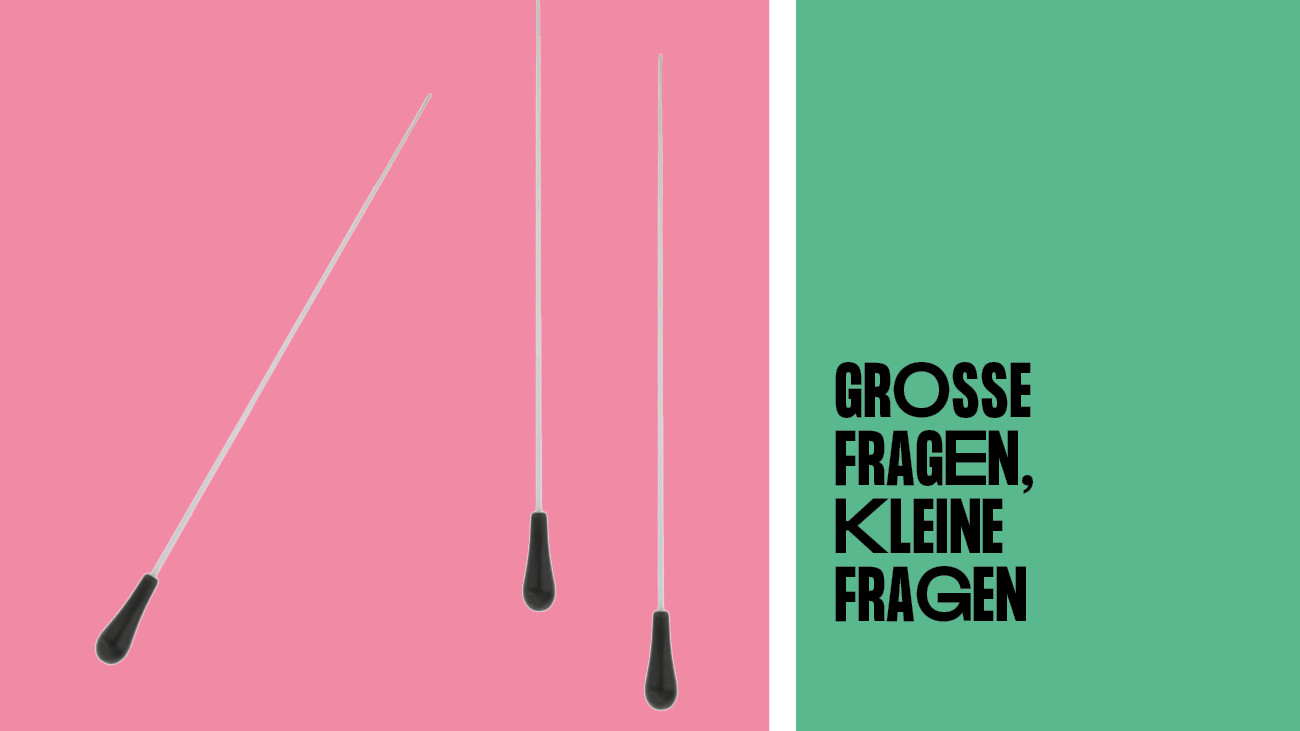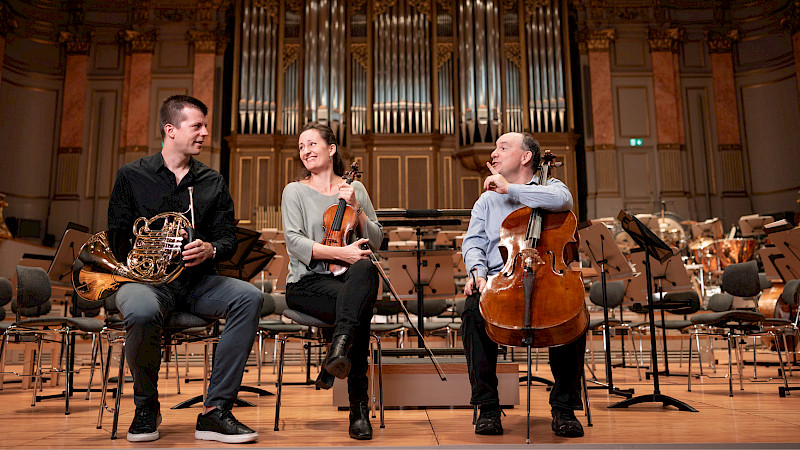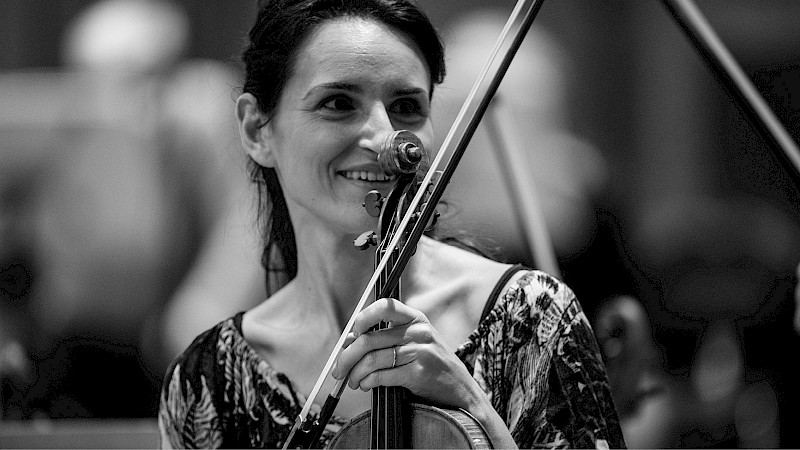
How does an orchestra react to new conductors?
Violinist Ulrike Schumann-Gloster describes what is important for debuts.
In my opinion every orchestra responds differently to a new person on the podium. It is irrelevant, if some of the players in the orchestra already have either previous experiences based on substituting or playing elsewhere. As an orchestral organism we will respond in our individual way. The dynamics can not be predicted. The relationship of an orchestra and a conductor is rather specific and the chemistry genuinely unique.
Our general attitude I perceive as open and constructive; we are very happy to welcome all conductors who bring the qualities that make our work fun and exciting. For me the success is based on the conductor’s ability to provide a sense of meaningfulness and significance, guided by a convincing concept of the sound. All that can happen best, if the conductor realizes the significance of us as a whole organism and the creative contributions of our orchestral soloists.
A lot of the communication is about body language: in my perception a conductor "sounds" when conducting without doing much, she or he has a natural disposition that will either evoke sounds and colours or not. Gestures, glances, presence, breathing, phrasing and timing are central, because they can not talk in a concert: exclusively the non-verbally communicated can result in sound. Nevertheless, in the rehearsals certain aspects and knowledge regarding music history or performance practice as well as emotional comparisons will help explain the conductors‘ ideas. These can either make sense or not.
All in all, a debut is a blind date in which we trust our management, their judgements, collaborations and contacts. In the end, we carry the musical work and the result in our hands and fill the score with life, fantasy and imagination so that our audience experiences the evening as something unforgettable.





